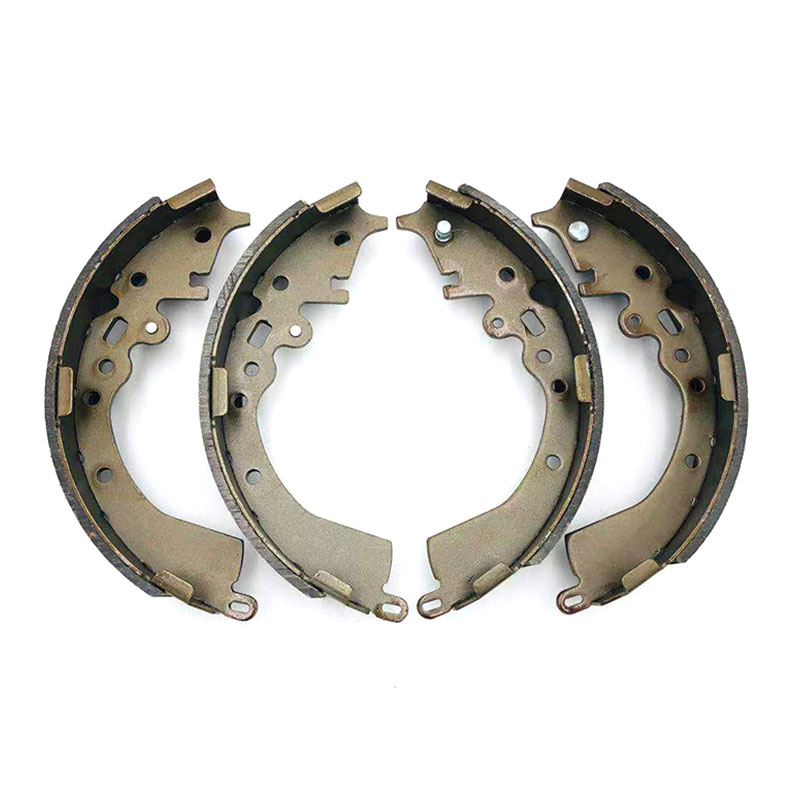When it comes to the crucial task of stopping a vehicle, the components that play a pivotal role are brake pads and brake shoes. These two essential elements of a braking system work together to convert kinetic energy into heat and bring your vehicle to a safe halt. In this article, we delve into the differences, functions, and considerations surrounding brake pads and brake shoes to help you understand their distinct roles in ensuring road safety.
Brake Pads: The Stalwarts of Modern Braking
Brake pads are an integral part of disc brake systems, which are widely employed in modern vehicles due to their efficient and responsive braking performance. Comprising a friction material mounted on a metal backing plate, brake pads are designed to press against a spinning rotor when the brake pedal is applied. The friction generated between the pad and the rotor converts the vehicle's kinetic energy into heat, ultimately leading to deceleration and stopping.
The advantages of brake pads include:
Efficient Heat Dissipation: The open design of disc brakes allows for effective heat dissipation, reducing the risk of brake fade during prolonged or intense braking.
Responsive Braking: Brake pads offer quick and consistent response to brake pedal input, resulting in enhanced control and braking performance.
Low Maintenance: Brake pads generally require less maintenance and have a longer lifespan compared to brake shoes.

Brake Shoes: Navigating the Legacy of Drum Brakes
Brake shoes, on the other hand, are a crucial component of drum brake systems, which were once prevalent in older vehicles and are still used in some applications. Drum brakes consist of a rotating drum that houses brake shoes. When the brake pedal is pressed, the brake shoes are forced against the inner surface of the drum, generating friction and slowing down the vehicle.
Key advantages of brake shoes include:
Cost-Effectiveness: Drum brake systems, which incorporate brake shoes, tend to be more cost-effective in terms of manufacturing and maintenance.
Simplicity: Drum brakes and brake shoes have a simpler design compared to disc brakes, which can lead to easier maintenance in some cases.
Considerations and Comparisons
When choosing between brake pads and brake shoes, several factors come into play:
Braking Performance: Disc brakes with brake pads generally offer superior stopping power and better heat dissipation, making them the preferred choice for high-performance vehicles and situations requiring frequent or intense braking.
Vehicle Type: The type of vehicle and its intended use influence the choice between disc brakes with brake pads and drum brakes with brake shoes. Passenger cars and most light trucks commonly use disc brakes, while some heavy-duty trucks and older vehicles still use drum brakes.
Maintenance: While brake pads tend to have longer lifespans and lower maintenance requirements, drum brakes may be easier and more cost-effective to service in certain situations.
Environment: Factors like driving conditions, climate, and terrain may affect the performance and longevity of both brake pads and brake shoes.
Conclusion
In the realm of vehicular safety, brake pads and brake shoes play indispensable roles in bringing your vehicle to a controlled stop. The choice between these components largely depends on the type of braking system your vehicle employs and its specific needs. Brake pads excel in offering responsive braking and efficient heat dissipation, making them the preferred choice for modern vehicles. On the other hand, Custom brake shoes maintain their significance in certain applications, particularly where cost-effectiveness and simplicity are priorities.
Ultimately, whether your vehicle relies on the precision of brake pads or the legacy of brake shoes, regular maintenance and prompt replacement of worn-out components are essential to ensure optimal braking performance and, most importantly, your safety on the road.



Comments
Please Join Us to post.
0